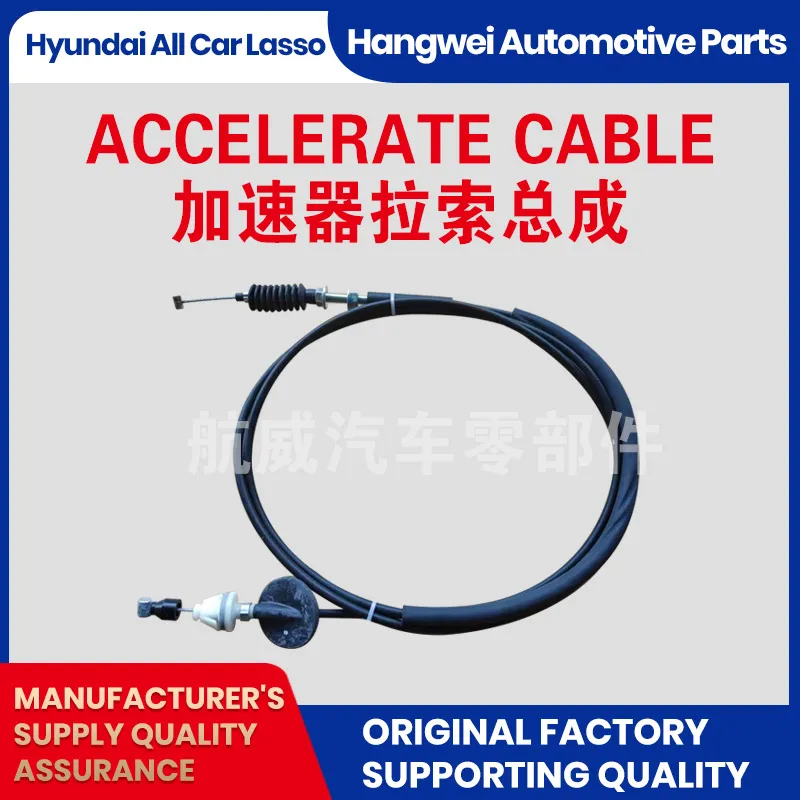Understanding the Function and Adjustment of the Throttle Cable in Your Weed Eater
Understanding the Throttle Cable of a Weed Eater An Essential Guide
When it comes to maintaining garden tools, the weed eater—also known as a string trimmer—is a favorite among homeowners and professionals alike for its efficiency in keeping lawns and gardens tidy. One of the essential components that play a significant role in the operation of a weed eater is the throttle cable. Understanding its function, common issues, and maintenance can help ensure that your weed eater runs smoothly and effectively.
What is a Throttle Cable?
The throttle cable is a crucial part of a weed eater's engine control system. It connects the throttle lever to the carburetor, regulating the amount of fuel and air entering the engine. By controlling the throttle, the operator can adjust the engine's speed and performance. This control allows for precision trimming, whether it’s tackling dense weeds or performing delicate edging around flower beds.
Importance of the Throttle Cable
The throttle cable directly impacts the performance of the weed eater. A well-functioning cable ensures that the engine responds appropriately to the operator's commands. When the throttle trigger is pulled, the cable engages the carburetor, allowing more fuel and air into the combustion chamber, resulting in increased power and speed. Conversely, releasing the throttle cuts back on fuel and air, slowing the engine down for lighter tasks.
Common Issues with Throttle Cables
Like any mechanical component, throttle cables can encounter issues over time. Some common problems include
1. Cable Fraying or Breakage Although made from durable materials, the throttle cable can wear out due to exposure to elements, rigorous use, or improper handling. A frayed or broken cable will result in inadequate control over the engine speed, making the weed eater unreliable.
2. Sticking or Binding Sometimes, the cable can become stuck due to dirt, debris, or corrosion. This can cause delayed throttle response, leading to inconsistent performance and potentially causing damage to the engine if not addressed.
weed eater throttle cable

3. Improper Adjustment The throttle cable needs to be properly adjusted to ensure smooth operation. If it’s too tight or too loose, it can affect the engine's performance and response time.
Maintenance Tips for Throttle Cables
To prolong the life of your weed eater's throttle cable and ensure optimal performance, consider the following maintenance tips
1. Regular Inspection Routinely check the throttle cable for signs of wear, fraying, or corrosion. A visual inspection can help catch problems early before they lead to failure.
2. Keep it Clean Clear away any debris or dirt that may accumulate around the throttle area. Keeping this section clean minimizes the risk of binding and sticking.
3. Lubrication Occasionally, apply a light lubricant to the cable. This helps decrease friction and allows for smooth movement, which is crucial for responsive throttle performance.
4. Proper Usage Avoid using excessive force when pulling the throttle trigger. Gentle, controlled movements can reduce the strain on the cable and extend its lifespan.
5. Replacement If your throttle cable is damaged or showing significant wear, it is essential to replace it with a compatible part from a reputable brand. This ensures that you’re not only restoring performance but also maintaining safety.
Conclusion
The throttle cable is an integral part of your weed eater that requires attention and care to function effectively. By understanding its role, common issues, and maintenance practices, you can ensure that your weed eater remains a reliable tool in your gardening arsenal. Regular upkeep, coupled with prompt repairs or replacements when needed, will not only boost performance but also make yard work a more enjoyable experience.
-
Upgrade Your Control with Premium Throttle CablesNewsAug.08,2025
-
Stay in Control with Premium Hand Brake CablesNewsAug.08,2025
-
Experience Unmatched Performance with Our Clutch HosesNewsAug.08,2025
-
Ensure Safety and Reliability with Premium Handbrake CablesNewsAug.08,2025
-
Enhance Your Vehicle with High-Performance Clutch LinesNewsAug.08,2025
-
Elevate Your Ride with Premium Gear CablesNewsAug.08,2025
